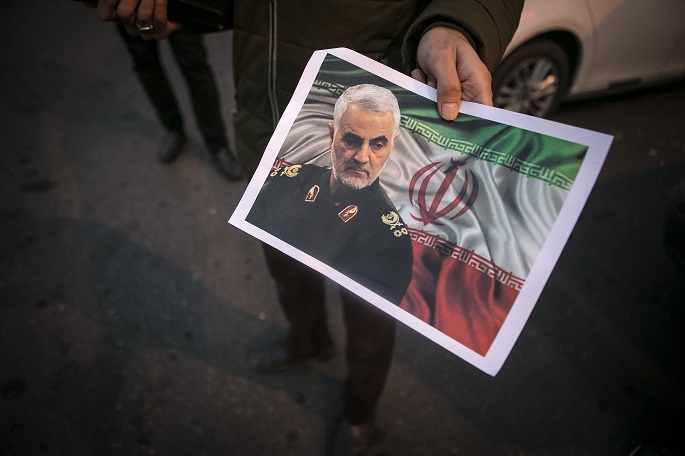Pentagon confirms U.S. killed top Iranian commander
Published : 04 Jan 2020, 00:02
The U.S. Department of Defense announced on Thursday night that U.S. forces had carried out a strike that killed Qasem Soleimani, commander of the Quds Force of Iran's Islamic Revolutionary Guard Corps.
"At the direction of the President (Donald Trump), the U.S. military has taken decisive defensive action to protect U.S. personnel abroad by killing Qasem Soleimani," said the Pentagon in a statement.
"This strike was aimed at deterring future Iranian attack plans," the statement added.
Iraqi state TV reported earlier that an attack near Baghdad International Airport in the Iraqi capital on Friday killed Soleimani, along with Abu Mahdi al-Muhandis, the deputy chief of Iraq's paramilitary Hashd al-Shaabi forces.
The latest move by U.S. forces came days after supporters of the Hashd al-Shaabi militias, mourning those killed in an earlier U.S. attack in Iraq, stormed the perimeter of the U.S. Embassy in Baghdad.
The Pentagon claimed in the statement that Soleimani had "approved" the attacks on the U.S. embassy and "had orchestrated attacks on coalition bases in Iraq over the last several months."
Iran has denied involvement in the recent deadly attacks on the U.S. forces in Iraq.
Hours ahead of the U.S. strike, Pentagon chief Mark Esper said in a statement that "attacks against us will be met with responses in the time, manner, and place of our choosing."
Trump's decision has invited fierce response among U.S. lawmakers, who mostly expressed their opinion along party lines.
"Qassem Soleimani masterminded Iran's reign of terror for decades ... America is safer now after Soleimani's demise," said Republican Senator Tom Cotton in a statement.
Tom Udall, a Democratic Senator from the State of New Mexico, described the move as "a reckless escalation of hostilities," which could put "U.S. forces and citizens in danger and very possibly sinking us into another disastrous war in the Middle East."
"President Trump is bringing our nation to the brink of an illegal war with Iran without any congressional approval as required under the Constitution of the United States," Udall added in a statement.
After its unilateral exit in 2018 from the 2015 Iran nuclear deal, Washington has been mounting pressure on Tehran through a series of sanctions to seek re-negotiations. Iran has maintained a tough stance and scaled back its nuclear commitments in response.


